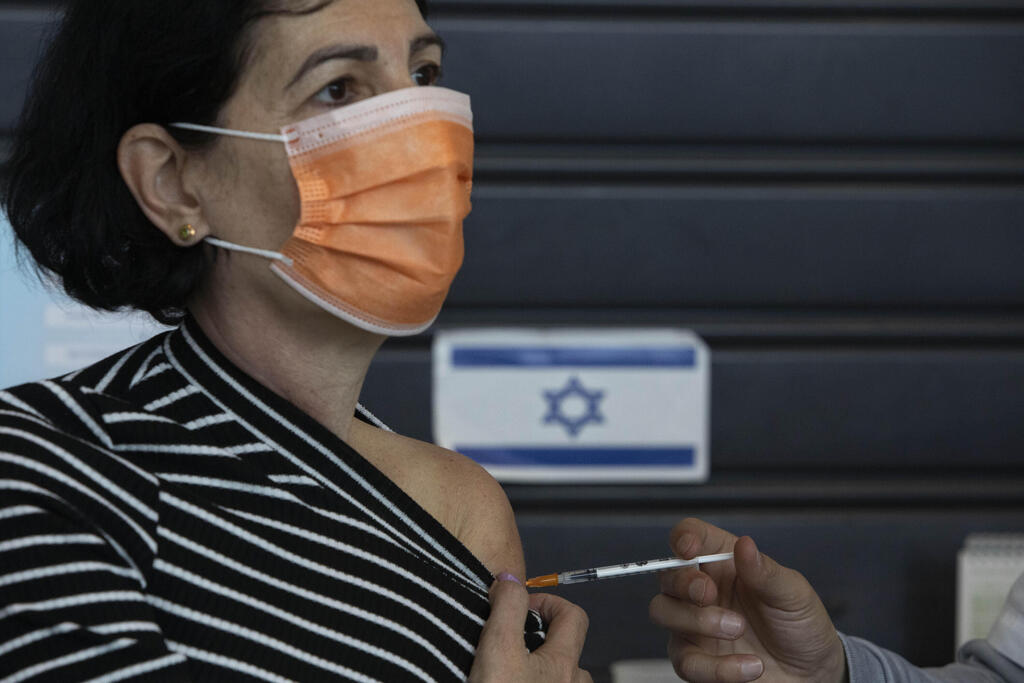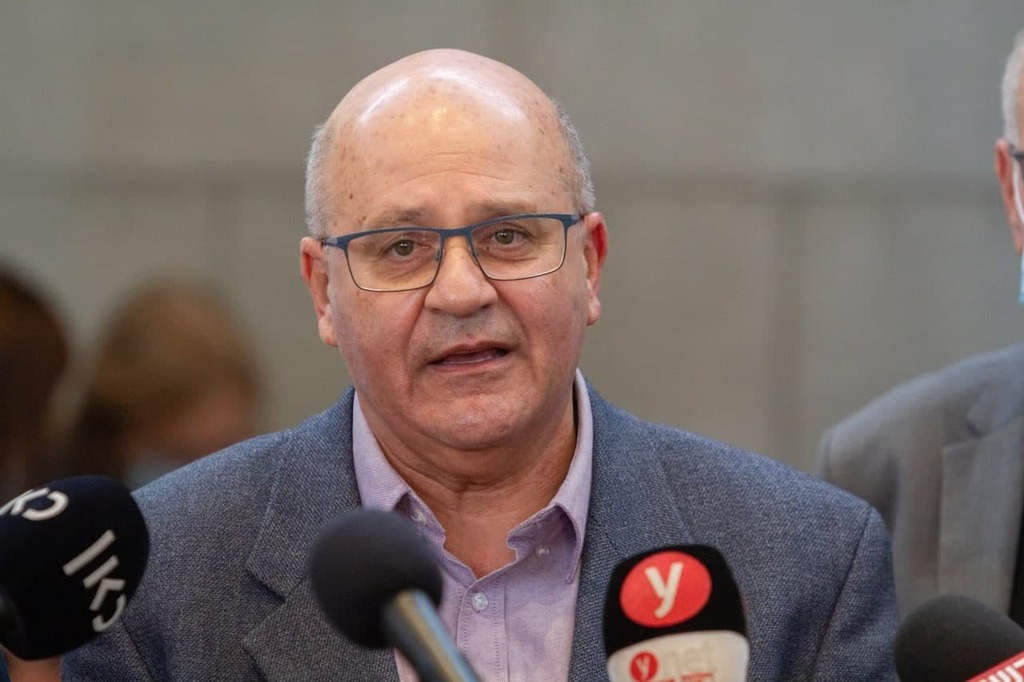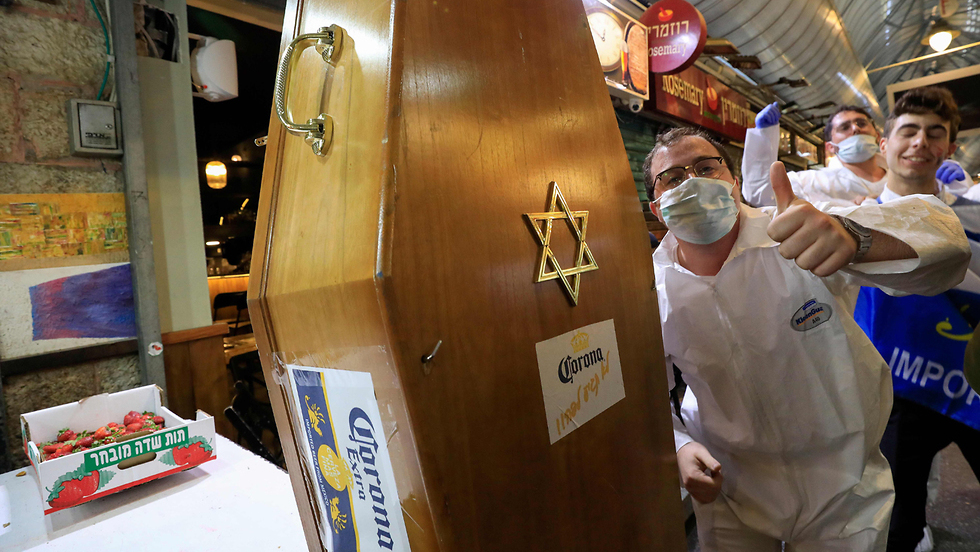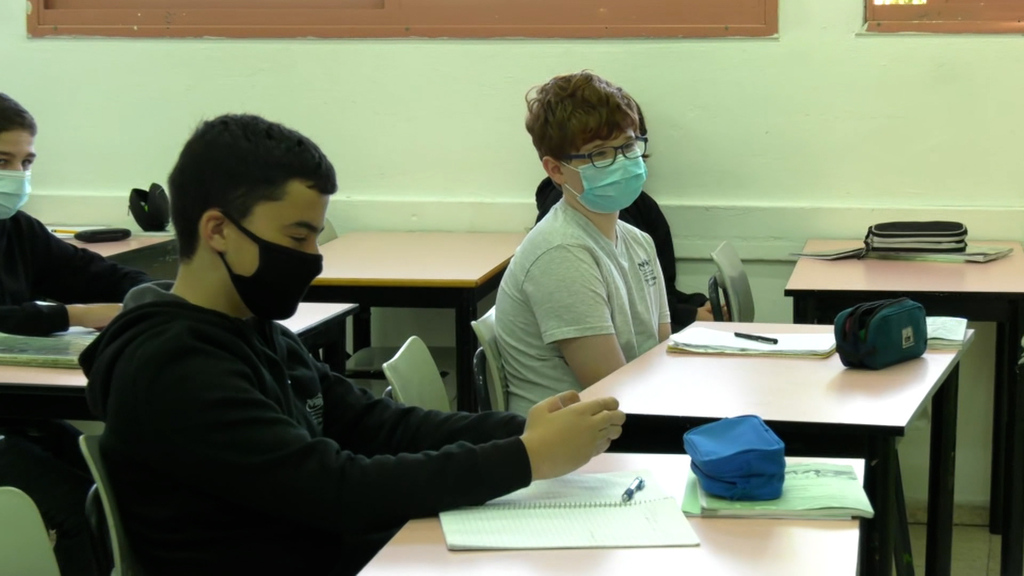If Israel's coronavirus numbers don't improve in the near future, the officials will not rule out imposing a lockdown during the holiday of Passover for the second year in a row, Health Ministry Director General Hezi Levi said Monday.
Levi told Ynet TV that Israel is "walking a tightrope" as the country began to lift some restrictions after weeks of full lockdown due to surge in COVID-19 cases. "I am very worried, the lockdown did not bring down serious cases and deaths to the levels we wanted and seen in previous closures," he said.
"We are seeing a very high infection rate, with the virus' basic reproduction number (R) getting getting closer to 1. If it surpasses that, which it can do very quickly, instead of 8,000-6,000 new daily cases, we will start seeing double that in just two weeks. We are walking a tightrope, we must not gamble. Any mistake can drive the infection up."
He said if the situation doesn't improve, the spring holidays of Purim and Passover will have to be celebrated under heavy restrictions, similarly to last year when the pandemic first hit.
"The epidemiological danger of Purim parties and gatherings is known to us. We are trying to make it as easy for the public as possible, but without taking unnecessary risks that will increase the infection," he said. "We will wait to see what the infection trends will be [during Passover]. It is possible that if the current trend continues, we will [impose restrictions], for the second year in a row, unfortunately," he added.
"Even if there is no lockdown and we do not restrict gatherings, mass Purim celebrations, parties in confined spaces, it must not take place this year. Even if it is celebrated among the nuclear family and not in huge parties on the street, I believe this year we won't be able to do it if the infection rate is not low."
Levi said that he understands the economic and emotional hardship of keeping businesses and schools closed, but the country cannot risk allowing itself to lose control over infectivity and the rate of hospitalizations.
After failing to reach an agreement Sunday, ministers were set to convene later in the day to decide on the reopening of the education system and other easing of restrictions.
"Coronavirus infection is very much present among young people and although most are showing mild symptoms, we must take this into account when we prepare for the reopening of schools," Levy said, adding the Health Ministry will recommend that schools will not reopen in virus hotspots.
He said the ministry's outline will focus on gradual reopening of preschools and grades 1-4 only in "green" and "yellow" cities - communities with low coronavirus infection - with frontal and remote studies being interchanged every other day. He stressed it is important for teachers to get vaccinated, given that those under 16s cannot be inoculated.
Levi also touched on the country's vaccination drive, saying that there will likely be a rise in inoculations in the coming days after the past weeks have seen a drop in turnout.
4 View gallery


A woman vaccinated against coronavirus at a Maccabi HMO clinic in Tel Aviv
(Photo: AP)
He said that the Health Ministry is working on several plans to increase the vaccination numbers, including vaccinating people at work, special drive-in centers at remote population areas and opening of more clinics. Levi said that as of now, 60% of homebound Israelis have been vaccinated.
He added that the government is mulling extending the closure of Ben Gurion Airport further in an effort to prevent the arrival of new coronavirus variants.
"I estimate that we will extend the restrictions together with humanitarian flights to rescue Israeli citizens [abroad], isolation upon arrival, testing and coronavirus hotels so that we avoid as much as possible the import of these new strains, which could impact things in a negative way."




